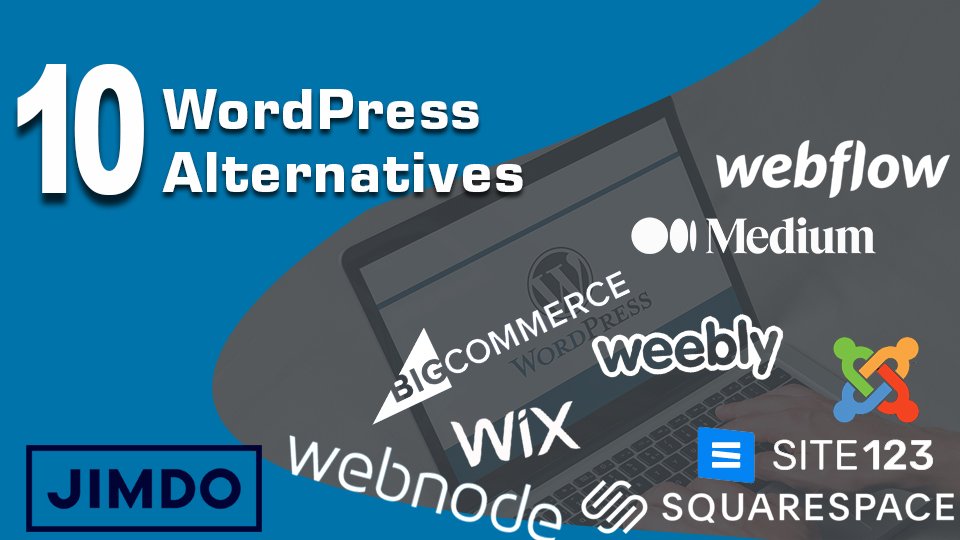Are you searching the 10 best WordPress alternatives for 2021? If yes then, many WordPress alternatives can be used to build various types of websites.
The WordPress alternatives are all in one platform which helps in creating a website, blogs and manage content. It is popular among business owners, bloggers, and publishers to maintain their online appearance. It is the best choice for those who want a customized website.
Let’s talk about the 10 best WordPress alternatives in 2021.
1. Wix:
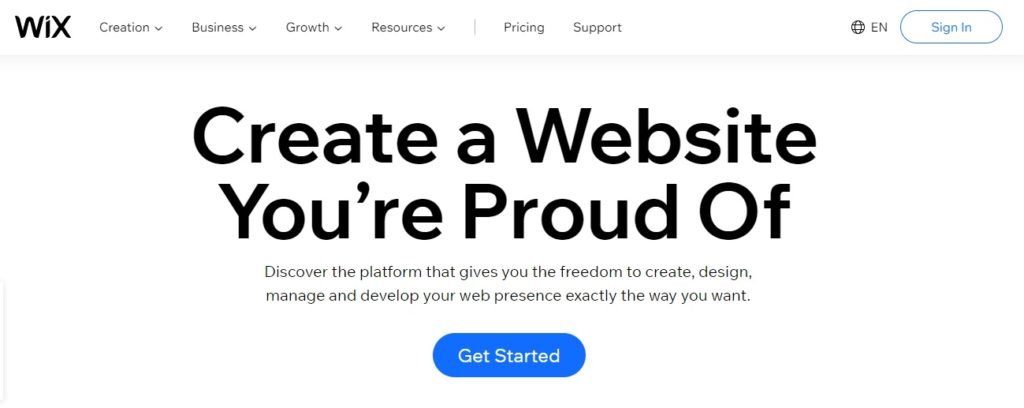
Wix was founded in 2006, in Israel. It is a popular website-building platform having millions of users all around the world. It is an easy site for everyone to create attractive professional websites, using drag and drop builder. It is useful to promote business, and set up an online shop or helps to test new ideas. There are many choices and even the free plans come with the same design option.
Pros
- Huge improved template collection.
- Lots of extra features available.
- Intuitive drag and drop interface.
Cons:
- Templates are not replaceable.
- Expensive Premium plans.
2. Weebly:

Weebly was founded in 2006. It is a popular website builder that allows the user to build their custom domain name easily. Especially, it is free of charge and it would be an excellent choice to customize a website, as it comes with a drag and drops user interface. According to the year 2020, Weebly was provided in 15 different languages.
Pros:
- Appreciable for eCommerce.
- Easy to use site editor.
- Offers attractive themes with custom-coloured backgrounds.
Cons:
- Limited blogging tools.
- Expensive.
- Drag and drop come with some restrictions.
3. Jimdo:

Jimdo was founded in 2007, in Hamburg, Germany. Building a site with Jimdo is a good option where more than 20 million websites have been created on it and there are many free basic plans to try. The paid plans encompass not only a web editor but also offer more advanced features like images, content, and a simple online store. Jimdo users can even sell the stuff using this site. It has a better template design option in comparison to other sites.
Pros:
- Very easy to use.
- Available not only in English language but other many languages.
- Mobile–friendly websites.
Cons:
- Limited eCommerce option.
- Some templates aren’t as impactful as others.
4. Squarespace:

Squarespace was launched in 2004. It is the best WordPress alternatives having different features, templates, themes, plugins, and many more. Users can pre-build their website templates and a variety of drag and drop widgets are available to add elements like images and text. The designs are very attractive and responsive to use.
Pros:
- It’s all–in–one platform.
- The backend design is easy to use.
- Mobile – friendly.
Cons:
- Lack of advanced marketing tools.
- Adding and editing content can sometimes become tough.
5. Webnode:

Webnode was launched in 2008. It consists of 3 different website solutions: A personal website, a business website, an e-commerce website. It allows users to create sites by drag and drop elements such as blogs, photos, galleries, and much more. The system can be operated on internet browsers like internet explorer, Mozilla Firefox, Netscape, Google Chrome, and Opera.
Pros:
- Automatic mobile version.
- Great for SEO
- Multi-language platform.
Cons:
- Limited templates.
- Limited eCommerce features.
6. Joomla:
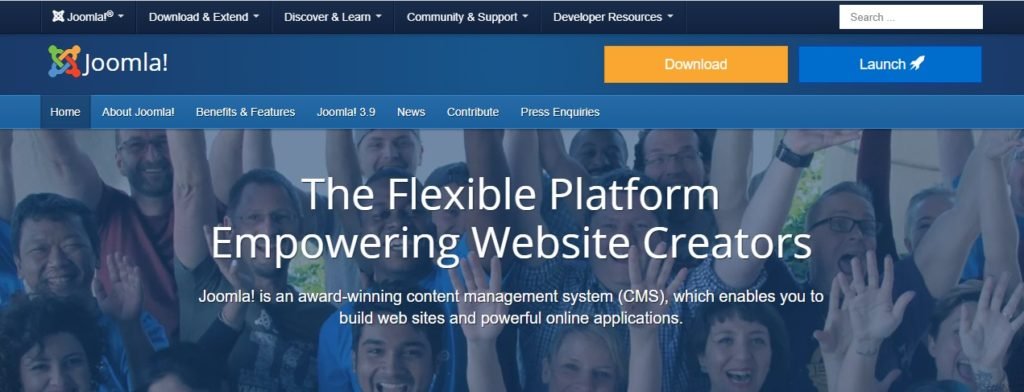
Joomla was launched on September 22, 2005. It is a free and open-source content management system to issue web content on websites. It helps the users to build powerful and dynamic websites. It has got huge popularity over the last decade and became successful as one of the most widely used content management globally. It has 900+ free themes for its users.
Pros:
- It is user-friendly and easy to modify.
- It is easy to edit.
Cons:
- Not suitable for Newbie.
- There can be some compatibility issues.
7. Webflow:
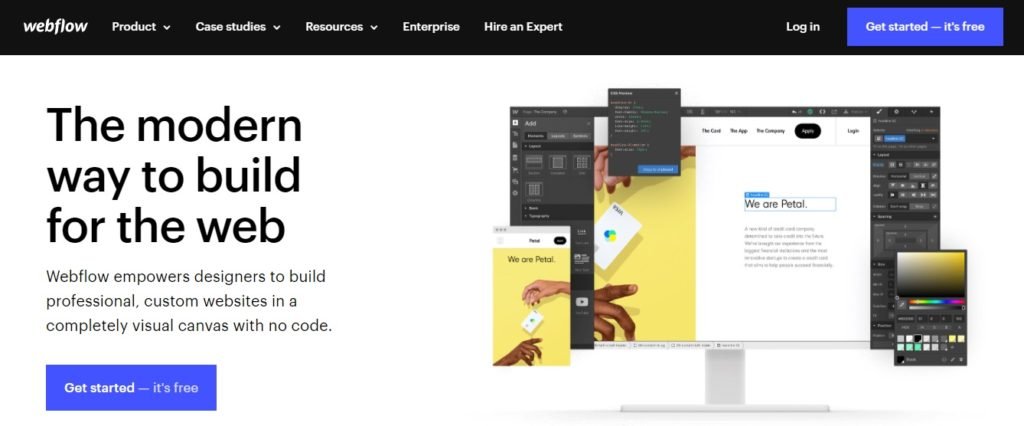
Webflow was launched on August 5, 2013. Webflow allows users to build responsive websites with browser-based visual editing software. Websites built on Webflow are powered by Amazon CloudFront and hosted on Fastly. The templates in the Webflow are well –designed, mobile-friendly, and cover large areas. It also offers a forever-free plan for the users.
Pros:
- Responsive page designs.
- Great performance.
- Good customer support.
Cons:
- Plan variation may be confusing.
- Limited code customization.
8. Medium:

Medium was founded in 2012. It is an interesting American Online publishing platform where readers can find vigorous thinking and also get a chance to share unheard voices and contents on any topic. It has a great source of articles from various writers, poets, and comic artists from all around the world. On the other hand, more than 170 million readers come to find articles monthly.
Pros:
- Features are flexible.
- A free platform to share articles.
Cons:
- Huge completion for getting attention.
- You’re not the owner of your article.
9. BigCommerce:

BigCommerce was launched in 2009. It’s a company that provides a Software as a Service (SaaS) e-commerce platform. It has features that include customer groups and segmentation, search engine optimization, web hosting, and many others. It allows the business owners to set up online stores and helps to sell their products on the website.
Pros:
- Allow selling on Amazon, eBay, and other sites.
- Flexible transactions.
Cons:
- Limited annual sales.
- Communication should be strong.
- Content should be regularly created.
10. Site123:
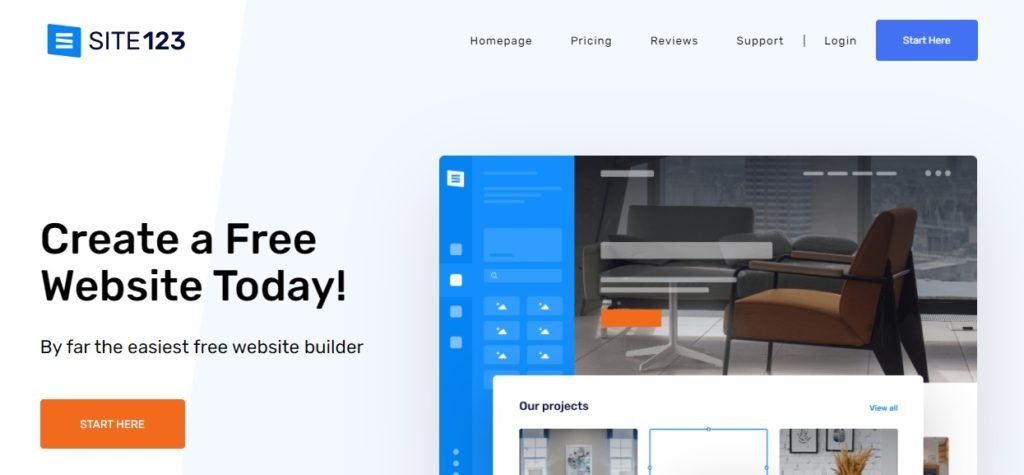
Site123 was founded in 2015. It offers free and easy sites which are useful for individual and small business. It helps the users to create a website easily. Similarly, it supports Multilanguage sites too. The features are free of charge but if Multilanguage features are needed then they are priced accordingly https://hwplaygames.com.
Pros:
- Straightforward signup process.
- Multilingual features.
Cons:
- Site123 is costly.
- Restrictions on layout.
Conclusion:
In my opinion, Wix and Joomla would be the best WordPress alternatives in 2021. Since Wix is easy to use and it has a free version, everyone can use it and take advantage of the beauty of it. It is the best option for beginners who want to design and update their site with less effort and quick.
Likewise, if you want to create a customized website then Joomla is also the next option. Nowadays, with its easy to use interface and highly customizable CMS, it has got huge popularity and has become successful as one of the most widely used WordPress alternatives in comparison to others.
In a nutshell, WordPress alternatives are useful for building websites and there are many reasons to choose these alternatives. They all are wonderful. You can choose any one of them to design an amazing website and start your professional journey with less effort.
Wrapping up, please feel to contact us in case of any queries and also do follow us on our Facebook & Twitter account for regular updates.
You may also like to read the comparison between WooCommerce & BigCommerce if you are interested in starting an e-commerce site.

